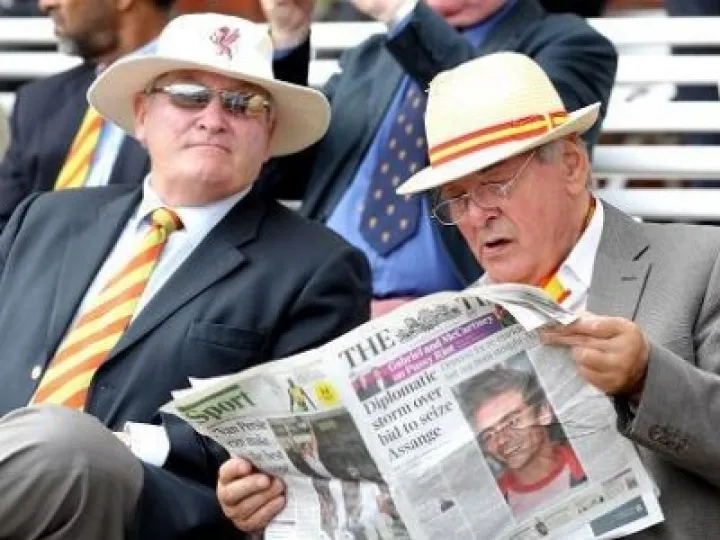How to find a new captain: place an advert in The Times
What do you do if you think you need a new captain? You could follow the England example and convince yourself that you don't. Maybe look around the dressing room for an alternative or poach a rising star from elsewhere. Then there is the option taken by Lancashire in 1964: place a small ad in The Times.
This unlikely and ultimately doomed route is recounted in a neatly-produced book published to mark the 150th anniversary of the county club. The advert was inconspicuous, nestled among the offer of a two-bedroom cottage for a few hours gardening, and a lady's appeal for a skiing companion in Switzerland. Here it is:
"A FIRST CLASS County Cricket Club invites applications from persons with first-class cricket experience for the position of Captain of the County XI. The position will carry a salary in accordance with experience and an allowance to cover expenses. Write Box J961, The Times, EC4."
No mention of Lancashire, but John Kay, a prickly local reporter with good contacts, put two and two together. The following day a story appeared in our sports pages under the headline "Lancashire seek good captain" – the adjective there presumably in case anyone thought they might want a poor one.
Things had reached a fine old state at the club. Having won only four of 28 Championship matches they commissioned a report from their doyen, Cyril Washbrook, into player performance and dressing-room harmony. Peter Marner and Geoff Clayton were subsequently released in a statement saying: "We intend to build up a new team who can be relied upon to conduct themselves well and pay a proper respect to the captain at all times." It went on to talk about "standards of achievement and team spirit." Sound familiar?
Ken Grieves was sacked as captain and when he saw the advert in The Times he described it as "an insult to Brian Statham," referring to the England bowler and Lancashire stalwart.
Nor was Grieves alone in his view. Malcolm Lorimer, the club historian and a co-author of the book, takes up the tale. "If you look at the size of the advertisement they clearly didn't have two bob to rub together," he says.
"They got a few spurious applications, but nothing serious. They tried to get AC Smith an England player with Warwickshire but that came to nothing and in the end they saw sense and appointed Statham, who was there in front of their eyes all along. That advert helped to bring about a revolution because members saw it as a complete humiliation. The committee was so far out of touch. They were odd times."
Pilloried and embarrassed, the existing committee stepped down en bloc. Cedric Rhoades, a self-made autocrat described by Eric Midwinter in a previous Lancashire history as "Old Trafford's answer to Che Guevara," came to power, which he held for two decades. "I want to make Lancashire the Real Madrid of cricket," Rhoades said.
So the small ad was not a great success, but if England continue to suffer over the coming months the ECB may decide they have nothing to lose by turning to our columns themselves. To save the recruitment department the time and trouble, I've sketched something out for them:
WANTED, low-maintenance cricketer to captain briefly-great international team into another new era. Inability to manage difficult players should not deter candidates. Experience of taking lambs to the slaughter an advantage. Strictly no funky fields.
€ 150 Years of Lancashire Cricket is the official book to mark the anniversary, by Andrew Searle, Paul Edwards, Graham Hardcastle and Malcolm Lorimer. Published by Max Books, £21.
Sign up to the Max Books Newsletter – click here to receive regular news and events information.

